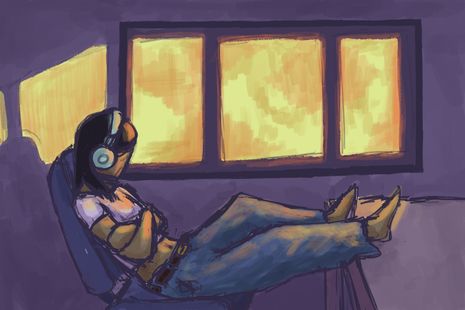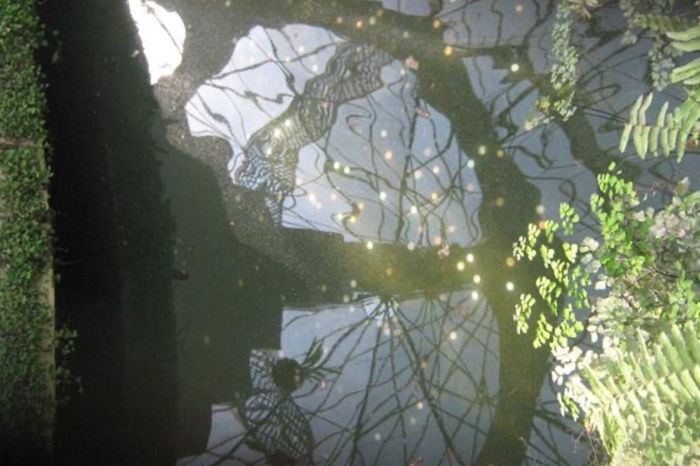Tomorrow will be the 22nd century: how I find hope in music
Isabel Chua narrates her search for hope in bleak times through different recordings of 22nd Century

With my eyes sore and swimming with blue light from the endless stream of increasingly bleak, dystopian news, I’ve found myself reaching again and again for the same artist this past week. With a habitual sense of urgency, I’ve been seeking out Nina Simone. In particular, my days have been mapped to the jolting, heart-wrenching rhythm of her recording of 22nd Century, a nearly nine-minute-long epic of poetry, prophecy, fear, vengeance, and hope, written by the Bahamian artist Exuma in 1974.
“It is unsettling and simultaneously cathartic to hear a litany of destruction and loss”
The first time I heard this cover, it felt like receiving a warning – Simone’s voice cutting cleanly through the noise to deliver an urgent message. 22nd Century sings of a dark and unyielding future, full of “ghosts and goblins,” where “there is no oxygen in the air” and “young men die in the spring”; equally, it speaks to a world that’s “changing, changing, changing,” where animals are “liberated” and “man became his god” in a utopian “tomorrow.” The ambiguity in the lyrics is brought out in Simone’s version by her refusal to provide false solace to the listener, instead staying true to the prophetic, chanting quality of Exuma’s original recording.
Her voice scrapes and slides across the record, inverts the rhythm, enters when it feels right, turns the meaning of the words around, lilts, softens, and effortlessly rises into the arc of the beat. She does not wait for the music to catch up with her, instead pressing forward like the relentless flow of time that the song chronicles. It is unsettling and simultaneously cathartic to hear a litany of destruction and loss emerging in Simone’s oracular tone; the song acts as both confirmation and rejection of all the listener’s worst fears, and as such, drags me bodily out of any apathetic spiral.
Listening to the original recording of 22nd Century – in the deserted eaves of my college library during the small hours of the night – was similarly disconcerting. It has a hallucinatory quality, connected to Exuma’s belief in Obeah, a system of spiritual and healing practices developed in the Bahamas, whose imagery recurs in his music as an assertion of identity and faith. As such, the lyrics walk the line between improvisation and script; though they have a liturgical quality, Exuma’s delivery makes them sound spontaneous and alive. The song’s backing is sparser, the percussion more jittery, as though nervous of the power of the vocals. Exuma’s voice is resonant and drags leisurely between verses, interspersed with breathy, unnerving noises and the familiar, striking refrain: “tomorrow will be the 22nd century.” For me, this line shifts the song away from dystopia towards hope; although “life is taken and there are no more babies born,” tomorrow still “will be,” and the “tomorrow” will continue to arrive and transform the present.
“I was transfixed by the openness to interpretation in both recordings”
I was transfixed by the openness to interpretation in both recordings, listening over and over to hear the way the two contrast subtly, and in doing so, sing of wholly different possible futures. Justin Vivian Bond, a transgender singer and performance artist whose own version of the track is equally powerful, notes that they “don’t think [Exuma’s] intentions were anything close to what I’ve turned it into.” They changed the litany of dates in the song to situate the “guns and bugles blaring” in their own context – the activism during the AIDS crisis, contrasted with the studied indifference of the Reagan administration to the deaths on its doorstep.
They view it as “an eco-anthem, too” and refuse to let the piece be apolitical. In a clip of Bond performing the song in 2013, draped in silk, silver-blond hair shining, they move ecstatically, rocking in time to the music, and speak-singing the refrain like a protest chant, driving home its role as a defiant call against what is static, staid, and restrictive. Their 22nd Century is mesmeric, and with each rising phrase, I felt a little more fear melt away.
I came across the song again in Olivia Laing’s book Everybody: A Book About Freedom, which draws on similar themes of the oppressive control of the state, society, and the individual over the body. Laing views the lyrics as the foundations of a world that resists rigid categorization, full of “poetry, love and lives,” in which “you know a wedding ain’t the thing.” She sees the lyrics as wildly creative speculation, to the extent that they “manifest a freedom that is shared, that slips under the skin.” This resonates with Nina Simone’s definition of freedom as “no fear,” and encapsulates why every version of this song stays with me for days after listening. They confront the darkness without flinching and can make an apocalypse sound like a beginning.
What I think makes 22nd Century relevant to where we are now is its determination, in all iterations, to keep imagining the future, regardless of outlook, and fundamentally, to not accept things as they are out of resignation. It is a perfect example of music as a creative force, one that can bring new possibilities into being and work through suffering toward change. Though this ranging, prophetic anthem might not sound like an obvious source of comfort, it gives me the antidote to despair that only truth can provide – a promise of freedom, a promise of continuation, a promise that no matter what, “it will be, it will be, it will be…”
 News / Colleges charge different rents for the same Castle Street accommodation2 March 2026
News / Colleges charge different rents for the same Castle Street accommodation2 March 2026 News / News in Brief: waterworks, wine woes, and workplace wins 1 March 2026
News / News in Brief: waterworks, wine woes, and workplace wins 1 March 2026 News / Climate activists protest for ‘ethical careers policy’1 March 2026
News / Climate activists protest for ‘ethical careers policy’1 March 2026 News / Private school teacher who lied about Cambridge degree barred from teaching27 February 2026
News / Private school teacher who lied about Cambridge degree barred from teaching27 February 2026 News / Angela Merkel among Cambridge honorary degree nominees27 February 2026
News / Angela Merkel among Cambridge honorary degree nominees27 February 2026









